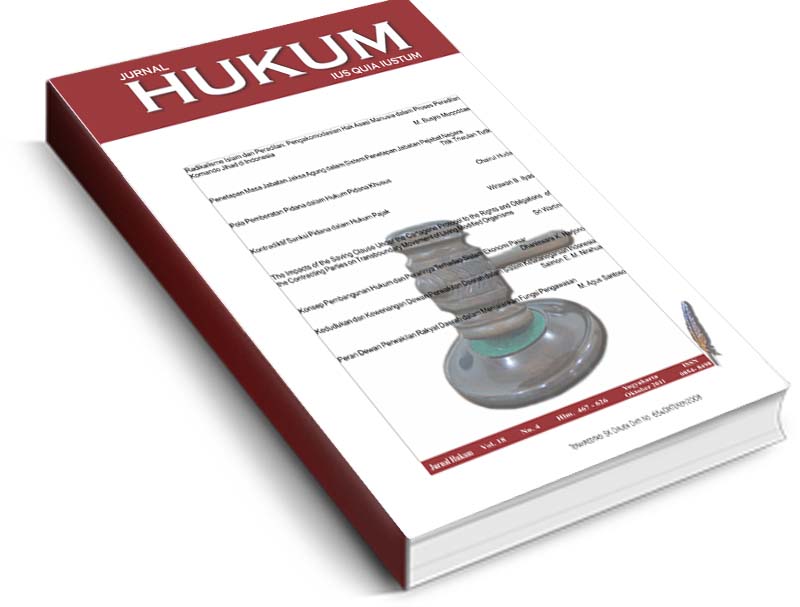Main Article Content
Abstract
This study is focused on the aspect of law enforcement, especially on tax law. The study additionally examines the process of tax laws enforcement that tends to emphasize on the criminal law rather than on administrative one. This research was conducted by using a normative juridical method focused on primary and secondary materials.The result of the research shows that merely emphasizing the criminal aspects of tax law enforcement will only jeopardizes the primary goal of tax administration in collecting tax revenue that is highly needed for public needs such as building schools, bridges, hospitals, fuel subsidies, and so on. Conversely, using an administrative approach will maximize tax revenue because it will make taxpayers and tax officers feel safe every time they face a tax dispute.
Keywords
Article Details
Authors who publish with this journal agree to the following terms:
a. Authors retain copyright and grant the journal right of first publication with the work simultaneously licensed under a Creative Commons Attribution License that allows others to share the work with an acknowledgement of the work's authorship and initial publication in this journal.
b. Authors are able to enter into separate, additional contractual arrangements for the non-exclusive distribution of the journal's published version of the work (e.g., post it to an institutional repository or publish it in a book), with an acknowledgement of its initial publication in this journal.




